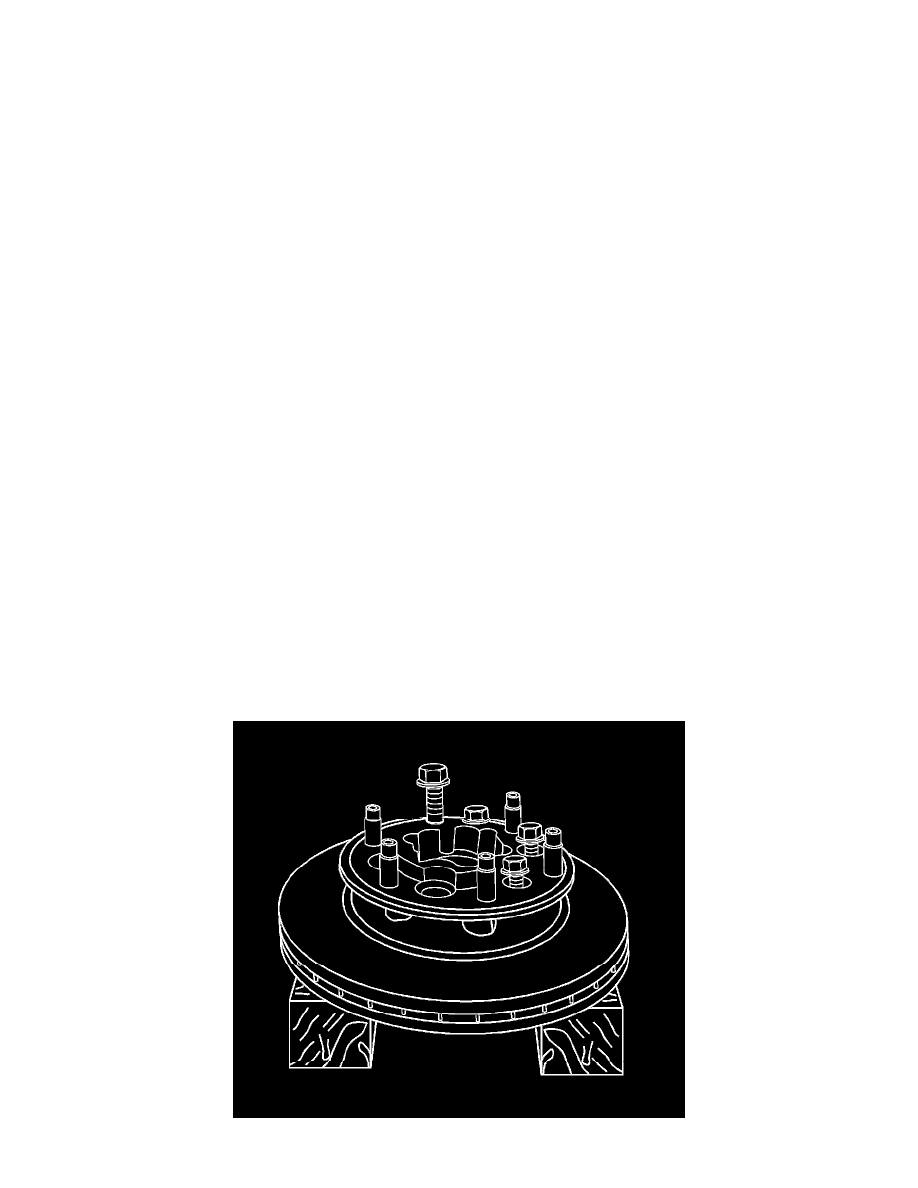Colorado 2WD V8-5.3L (2009)

Brake Rotor/Disc: Removal and Replacement
Brake Pad and Rotor Burnishing
Brake Pad and Rotor Burnishing
Warning
Road test a vehicle under safe conditions and while obeying all traffic laws. Do not attempt any maneuvers that could jeopardize vehicle control. Failure
to adhere to these precautions could lead to serious personal injury and vehicle damage.
Burnishing the brake pads and brake rotors is necessary in order to ensure that the braking surfaces are properly prepared after service has been
performed on the disc brake system.
This procedure should be performed whenever the disc brake rotors have been refinished or replaced, and/or whenever the disc brake pads have been
replaced.
1. Select a smooth road with little or no traffic.
2. Accelerate the vehicle to 48 km/h (30 mph).
Note: Use care to avoid overheating the brakes while performing this step.
3. Using moderate to firm pressure, apply the brakes to bring the vehicle to a stop. Do not allow the brakes to lock.
4. Repeat steps 2 and 3 until approximately 20 stops have been completed. Allow sufficient cooling periods between stops in order to properly
burnish the brake pads and rotors.
Brake Rotor Replacement
Brake Rotor Replacement
Removal Procedure
1. Raise and support the vehicle. Refer to Lifting and Jacking the Vehicle (See: Maintenance/Vehicle Lifting/Service and Repair).
2. Remove the tire and wheel assembly. Refer to Tire and Wheel Removal and Installation (See: Maintenance/Wheels and Tires/Service and Repair
).
3. Remove the wheel bearing and hub assembly. Refer to Front Wheel Bearing and Hub Replacement (See: Maintenance/Wheels and Tires/Wheel
Bearing/Service and Repair).
Note: Support the brake rotor assembly on wooden blocks to prevent damage to brake rotor friction surface.
